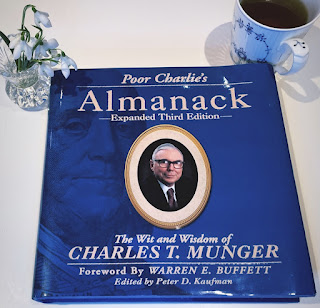How do you know if you can trust the management?
Warren Buffett - one of the most successful investors of all times - have three parameters he is looking for before he invests in a business. The company must be within his circle of competence, it must have a durable competitive advantage and then he wants management that he can trust.
Today is the first article out of two about management. In the first one we'll get to know the managers and in the next article, I'll dive into how to spot a great management performance. Click here to read about management performance. You'll also find management performance numbers in my free checklist.
“In looking for people to hire, you look for three qualities: integrity, intelligence, and energy. And if they don't have the first, the other two will kill you.”
Warren Buffett
When we talk about management of a business, we usually specifically mean the CEO - Chief Executive Office and sometimes this person is the founder of the business but in many public companies it's an executive manager hired to make key decisions for the business in order to allocate capital and to set direction for the long-term growth and operations of the company. The CEO is the main person we want to do our research on because this person is allocating capital and deciding on the strategy - important for the shareholders.
Sometimes the owner/founder hires a CEO but continue having a role in the business - for example a creative role, engineering role or technical skill role. If that's the case, then we also want to follow the owner/founder because this person still has a major impact on the business.
Other managers we want to read up on is the CFO (Chief Financial Officer) is responsible for financial planning and tracking. Many businesses have a CMO (Chief Marketing Officer) responsible for marketing, a CSO the Sales Officer or sometimes called the Chief Commercial Officer, the CIO (Chief Information Officer), Chief Digital Officer or Chief Technology Officer is responsible for the tech related part of the organisation and there are many more examples of C-suite officers.
Executives' Track Record
As mentioned, the most important managers to track is the CEO and potentially the owner/founder if this person is still with the company. For now, I'll stick with the term CEO, but you can swap the word with founder. The first questions you want to ask yourself is where the CEO came from before he was appointed CEO of this company. Did they grow within the business or come from outside? And what was their past career path like? Are there any articles or other material describing the executive officer in previous roles? What does the employees say about the company and the CEO on Glassdoor.com?
To get to know the CEO you can watch YouTube clips or other media appearances, listen to the earnings calls (often found on the investor relations section of the company's website), check the LinkedIn profile and social media sites to see if they have a public profile you can follow.
The CFO is also a very important person to do some research on. We definitely want a person in this role, that has integrity and doesn't manipulate the books (as the company's bookkeeper). What has been written about the CFO in the past? Do a Google search to find information.
Do their values fit with yours?
In terms of you own values, you can add value-based parameters to the management group. Is there a differentiated mix in the management group or do they all seem homogenous? And does that matter to you or not?
Sometimes in the news you'll see examples of companies that attracts media attention because of something the CEO said or a controversial action they took. As always people are divided in controversial cases. While some actions by CEO's are applauded by some, other people are offended by the actions. It all comes back to values and that's where you have to follow your own value-compass. I'll mention some controversial cases that was brought up in the news - they all had a negative effect on the stock price and that's why it's interesting to bring up.
Examples:
- The share price of Twitter dropped after the social media platform suspended the account of former US President Donald Trump.
- Back in 2013 Lululemon co-founder Chip Wilson indicated that yoga pants from the company wasn't made for certain body types. This made shareholders sell their stocks.
- Nike's share price dropped, then increase to a higher level after Colin Kaepernick was the face of an ad campaign.
The Board = shareholder representatives
The board of Directors in a company is a governance body voted for by shareholders. Just like with the management you want to familiarise yourself with the members of the board. Besides the bios on the company website, search on Google for information.
When you look at the board of directors and read about the competences they add to the business, do you believe they add value to the business or does it seem like pals in a closed club? The board represent the shareholders, so you also want to ensure that they're here for us as shareholders. Further we want to make sure that the board consists of experts, that can guide the management in the right direction. It's always great to read what expertise the board members bring to the business, though it's rare that companies write this - usually it's a simple bio without pointing out key competences of board members and how these competences add to the work in the board.






Comments
Post a Comment